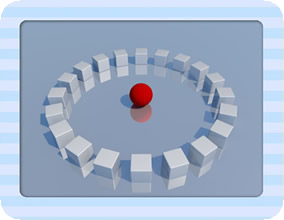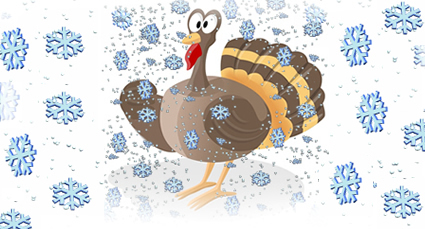Information
EVER FEEL LIKE YOU STAND OUT IN A CROWD?
All children have habits, whether good or bad. Some bad habits make a child uncomfortable and even stand out in a crowd. The obvious suggestion is to praise the good habits while trying to put the bad habits to rest. This is a lot harder than it sounds. Children often get involved with the wrong crowd, or see a respected adult participate in something which may be considered a poor habit, then mimic this behavior. They may even fall to peer pressure, which eventually can lead a child down a negative path.
PREVENTING A HABIT
 How
do
you prevent a child from picking up a bad habit such as
smoking, drugs, alcohol, or a sedentary lifestyle? While there are no
definitive answers to this question (since all situations and children
are different), here are some general suggestions.
How
do
you prevent a child from picking up a bad habit such as
smoking, drugs, alcohol, or a sedentary lifestyle? While there are no
definitive answers to this question (since all situations and children
are different), here are some general suggestions.
![]() Make sure the
parents are good role models. This
means they live a healthy lifestyle 24/7, especially when their
children are present. Smoking, drinking, alcohol, or a sedentary
lifestyle should never take place around a child. This does not
mean an adult cannot sit in front of a TV and watch a show with their
child. It just means setting an example by leading as an example.
If a parent is always watching TV and never getting off the
couch, a poor example is being set.
Make sure the
parents are good role models. This
means they live a healthy lifestyle 24/7, especially when their
children are present. Smoking, drinking, alcohol, or a sedentary
lifestyle should never take place around a child. This does not
mean an adult cannot sit in front of a TV and watch a show with their
child. It just means setting an example by leading as an example.
If a parent is always watching TV and never getting off the
couch, a poor example is being set.
![]() Teach your
children to have an open line of
communication
at a very young age. Let them know they always have an 'open
door' with regard to discussion. Starting young will teach them to
discuss any concerns they have with their exposure to the world.
Teach your
children to have an open line of
communication
at a very young age. Let them know they always have an 'open
door' with regard to discussion. Starting young will teach them to
discuss any concerns they have with their exposure to the world.
STAND OUT IN A POSITIVE WAY!
![]() Teach your
children what peer pressure means. Use
the peer pressure
page on
this website as a guide.
Teach your
children what peer pressure means. Use
the peer pressure
page on
this website as a guide.
![]() Try to get
involved in your child's life. Ask
non-invasive questions frequently so they know you care about them.
If you only ask questions when they partake in some form of
suspicious activity, they may not respond to you.
Try to get
involved in your child's life. Ask
non-invasive questions frequently so they know you care about them.
If you only ask questions when they partake in some form of
suspicious activity, they may not respond to you.
![]() Try to create some type of
fun, non-threatening contract
between you and your child which may assist in breaking the habit.
Try to create some type of
fun, non-threatening contract
between you and your child which may assist in breaking the habit.
![]() Get to know your
child's friends. Sometimes, you can learn
about
your child through their friends. In many cases, their
friends may convey information to you to help out your child. In
an opposite approach, you may see one of your child's friends around
town participating in some activity you do not approve of. You can
then share this new found information with your child.
Get to know your
child's friends. Sometimes, you can learn
about
your child through their friends. In many cases, their
friends may convey information to you to help out your child. In
an opposite approach, you may see one of your child's friends around
town participating in some activity you do not approve of. You can
then share this new found information with your child.
![]() Realize there is
no magic formula when it comes
to
preventing
habits. Watch your children closely. Notice changes in
their behavior, and pay attention to questions they may ask you.
Being sensitive to their needs and behaviors is an excellent
start. Understand that all children are different. What may
have worked with one of your children may not work with your other
child.
Realize there is
no magic formula when it comes
to
preventing
habits. Watch your children closely. Notice changes in
their behavior, and pay attention to questions they may ask you.
Being sensitive to their needs and behaviors is an excellent
start. Understand that all children are different. What may
have worked with one of your children may not work with your other
child.
STOPPING THE HABIT
 If a
child does form a bad habit, how do you stop it?
There are some methods, but you must figure out which one
works best for your child. All personalities and habits are
different, so they all must be handled differently.
If a
child does form a bad habit, how do you stop it?
There are some methods, but you must figure out which one
works best for your child. All personalities and habits are
different, so they all must be handled differently.
![]() First and
foremost, always seek professional consultation for
your child if needed. Your pediatrician, guidance counselor,
teacher, coach, school nurse, or principal would all be a great help.
They could tell you what steps to use to help your child.
First and
foremost, always seek professional consultation for
your child if needed. Your pediatrician, guidance counselor,
teacher, coach, school nurse, or principal would all be a great help.
They could tell you what steps to use to help your child.
STOPPING COLD TURKEY MAY WORK!
![]() Your consultant may inform
you to stop your child's bad habit cold turkey. "Cold
turkey" is an expression describing the actions of a person who gives
up a habit all at once.
Your consultant may inform
you to stop your child's bad habit cold turkey. "Cold
turkey" is an expression describing the actions of a person who gives
up a habit all at once.
![]() Your consultant may inform
you to stop your child's bad habit using the gradual method. In this
scenario, a child
stops a bad habit a little bit at a time.
Your consultant may inform
you to stop your child's bad habit using the gradual method. In this
scenario, a child
stops a bad habit a little bit at a time.
![]() If the above two methods
have no success, your consultant may ask you to consider counseling or
medication.
Again, leave this up to the professionals who deal with such
topics on a frequent basis.
If the above two methods
have no success, your consultant may ask you to consider counseling or
medication.
Again, leave this up to the professionals who deal with such
topics on a frequent basis.
![]() Praise positive behaviors! When a child does something positive,
let them know. The worst thing to do is let a child know they did
something negative on a consistent basis, or in front of others.
With this method, the child knows you are viewing them in a
positive manner opposed to a negative manner.
Praise positive behaviors! When a child does something positive,
let them know. The worst thing to do is let a child know they did
something negative on a consistent basis, or in front of others.
With this method, the child knows you are viewing them in a
positive manner opposed to a negative manner.
![]() Never punish a bad habit.
Never punish a bad habit.
![]() Try
not to take something
away without giving something in return. For example, if you
are going to take away sugary snacks from kids, replace it with a sweet
fruit. Another example may be, if you take away TV time from
a kids, replace it with a basketball or skateboard. The
thought is to not just take something away but replace/substitute with
a healthy alternative.
Try
not to take something
away without giving something in return. For example, if you
are going to take away sugary snacks from kids, replace it with a sweet
fruit. Another example may be, if you take away TV time from
a kids, replace it with a basketball or skateboard. The
thought is to not just take something away but replace/substitute with
a healthy alternative.
![]() Don't
fight the child's brain, just work with it. For example, if you
are worried about your child eating too much at night, have your child
brush their teeth a little earlier so their brain realizes they are
done consuming food for the night.
Don't
fight the child's brain, just work with it. For example, if you
are worried about your child eating too much at night, have your child
brush their teeth a little earlier so their brain realizes they are
done consuming food for the night.
![]() Reward good behavior with something they enjoy. For example, if
they act in a positive manner, they can play with their favorite toy,
or have a friend come over to the house to play.
Reward good behavior with something they enjoy. For example, if
they act in a positive manner, they can play with their favorite toy,
or have a friend come over to the house to play.
![]() Lastly, do
not jump to conclusions too quickly. This means, do not deem
something
to be a bad habit if your child does it just one time. Kids
are
curious by nature, and may experiment new things. If they
start to
perform these acts on a consistent basis with less and less control, it
is time to talk with them about these actions.
Lastly, do
not jump to conclusions too quickly. This means, do not deem
something
to be a bad habit if your child does it just one time. Kids
are
curious by nature, and may experiment new things. If they
start to
perform these acts on a consistent basis with less and less control, it
is time to talk with them about these actions.


